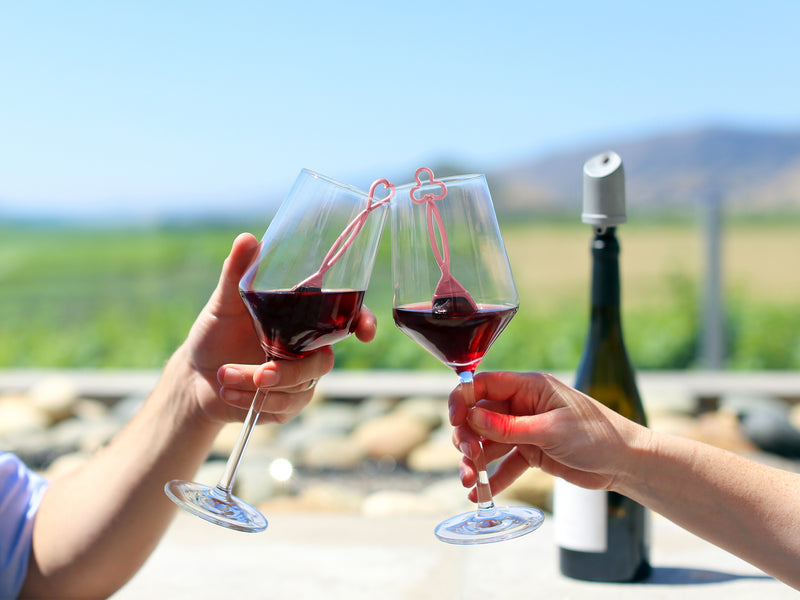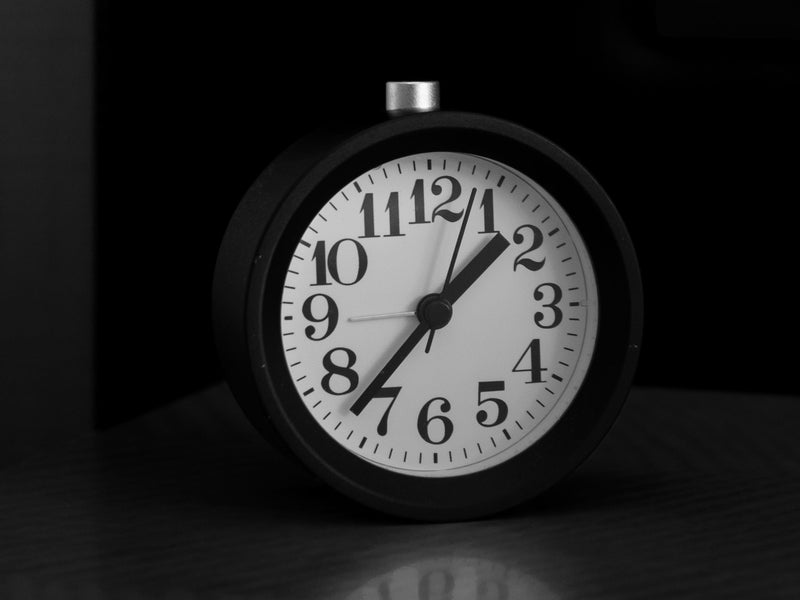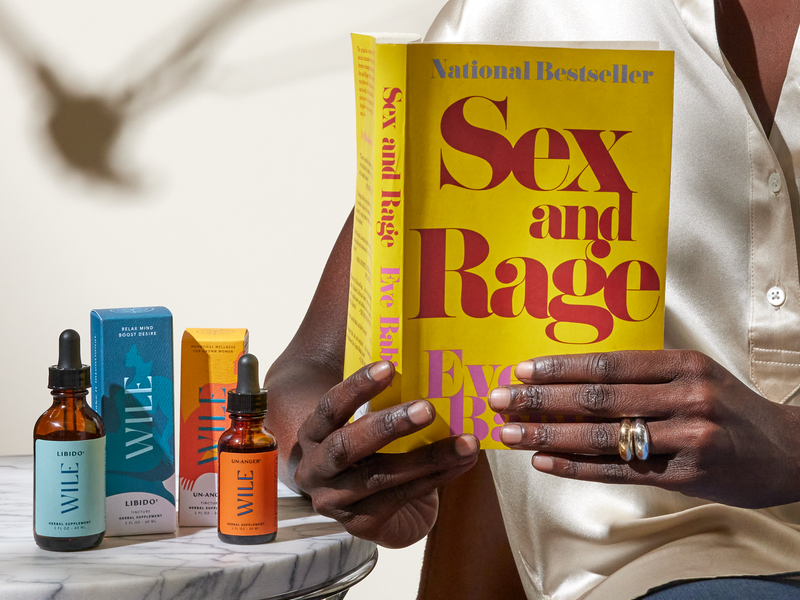Rehmannia is All About Balance.
If you’ve read up on Traditional Chinese Medicine, you’ve probably come across explanations that certain ingredients promote balance of yin and yang. These are opposite but complementary forces that need to be balanced in order to enjoy physical, mental and emotional health.
Rehmannia is scientifically shown to reduce stress. It’s also renowned in Traditional Chinese Medicine for encouraging yin energy and producing a cooling effect. Midlife stress got you feeling hot-headed? Rehmannia could be the mood supplement to help.
Why We Love Rehmannia
Rehmannia root gives naturopathic physicians a great opportunity to show off their expertise, because different preparations can have different effects. It’s best to take this root in formulas made by experienced naturopaths, like Stave the Crave, our drinkable women’s stress supplement.
Key Benefits:
Women’s Stress Relief - Like many of our favorite natural stress relievers, rehmannia is an adaptogen. Adaptogens work with your adrenal glands to balance stress hormones and help your body adapt to tension. Think of adaptogenic mood supplements as an anchor during a storm — they can help you return to calm when stress blows your emotions off course. Clinical trials have also shown that rehmannia can decrease occasional symptoms of anxiety and relax your stress response.
Metabolism Boost - Experiencing a metabolism change post-40? Yeah. Shifting perimenopause hormones and heightened stress can slow down our metabolisms and increase sugar cravings. Clinical trials show that rehmannia and kudzu can keep metabolisms moving and help mitigate midlife weight gain.
Now, look. We’re not telling you to shrink your body. Midlife body image is complicated. Wile users tell us weight is their #1 or #2 concern. Wherever you stand with body image, the rehmannia in our Stave the Crave stress-relief chai can contribute to a healthier feeling body. Because metabolism is not just the size of your thighs — it’s also how efficiently your body runs, processes nutrients and so much more.
Bone Health - No one wants to worry about their bone health, but decreased bone density leading to osteoporosis is yet another possible effect of perimenopausal hormone changes. This is another place where rehmannia is a women’s health heroine. There’s evidence that it can help decrease midlife bone loss and may even help improve bone density, especially when paired with exercise.
Traditional Uses:
Rehmannia has been used in Traditional Chinese and Korean Medicine for thousands of years. It’s a popular menopause ingredient because it’s said to increase yin energy and have a cooling effect that works great for hot flashes. often paired with Chinese peony, dong quai and ligusticum in a traditional women’s health and blood tonic called 4 Things Soup.
It also has been used for:
- Diabetes treatment
- Kidney support
- Menstrual health
- Bone health
- Anemia
About the Plant:
Rehmannia is native to north and northeast China. The flowers resemble hairy yellow or magenta foxgloves, which is why it’s sometimes called Chinese foxglove. Rehmannia also has clusters of hairy green leaves and woody-looking roots.
Occasionally naturopaths will use rehmannia flowers, but the roots are most commonly used in herbal medicine.
Found In (Wile Products)
- Stave the Crave stress-relief chai
Things to Know about Rehmannia:
This root may interact with diabetes or blood sugar medication, so make sure to talk to your doctor before taking rehmannia supplements if you use those.
It’s also best to check in with your provider before adding rehmannia to your supplement regimen if you’re pregnant or breastfeeding.
Some people experience mild side effects when taking rehmannia. These can include:
- Dizziness
- Drowsiness
- Fatigue
Clinical Research
- Chen, Wenna, Ximing Li, Lianqun Jia, Jun Wang, Lin Zhang, Diandong Hou, Jun-Yan Wang, and Lu Ren. “Neuroprotective Activities of Catalpol against CaMKII-Dependent Apoptosis Induced by LPS in PC12 Cells.” British Journal of Pharmacology 169, no. 5 (July 1, 2013): 1140–52. https://doi.org/10.1111/bph.12200.
- Hempen, Carl-Hermann, and Toni Fischer. A Materia Medica for Chinese Medicine: Plants, Minerals, and Animal Products. Elsevier Health Sciences, 2009.
- Hu, Shun-Jin, Qi Fang, Jiasheng Liu, Li Zhang, and En-Ze Cao. “[Clinical Study on Intervention of Liuwei Dihuang Pill on Hormonotherapy in Treating Nephrotic Syndrome].” Chinese Journal of Integrated Traditional and Western Medicine 25, no. 2 (February 1, 2005): 107–10.
- Jin, Un-Ho, Dong-Il Kim, Tae-Kyun Lee, Dong Ho Lee, June-Ki Kim, In-Seon Lee, and Cheorl-Ho Kim. “Herbal Formulation, Yukmi-Jihang-Tang-Jahage, Regulates Bone Resorption by Inhibition of Phosphorylation Mediated by Tyrosine Kinase Src and Cyclooxygenase Expression.” Journal of Ethnopharmacology 106, no. 3 (July 19, 2006): 333–43. https://doi.org/10.1016/j.jep.2006.01.012.
- Lee, Yoon Sup, Bora Jin, Sung-Hyun Lee, Jin Young Oh, Jung-Bin Song, Dong-Hun Lee, Young Ho Kim, and Hocheol Kim. “A Herbal Formula HT051, a Combination of Pueraria Lobata and Rehmannia Glutinosa, Prevents Postmenopausal Obesity in Ovariectomized Rats.” Evidence-Based Complementary and Alternative Medicine 2017 (December 26, 2017): 1–11. https://doi.org/10.1155/2017/8641535.
- Lin, Lan Ping, Qiuhong Wang, Yongxin Yi, Shihan Wang, and Zonglin Qiu. “Liuwei Dihuang Pills Enhance the Effect of Western Medicine in Treating Diabetic Nephropathy: A Meta-Analysis of Randomized Controlled Trials.” Evidence-Based Complementary and Alternative Medicine 2016 (February 21, 2016): 1–9. https://doi.org/10.1155/2016/1509063.
- Wang, Jun, Lixin Pei, Yueyue Zhang, Yong-Xian Cheng, Chunling Niu, Ying Cui, Weisheng Feng, and Guifang Wang. “Ethanol Extract of Rehmannia Glutinosa Exerts Antidepressant-like Effects on a Rat Chronic Unpredictable Mild Stress Model by Involving Monoamines and BDNF.” Metabolic Brain Disease 33, no. 3 (February 22, 2018): 885–92. https://doi.org/10.1007/s11011-018-0202-x.
- Zhang, Ru-Xue, Jin-Huang Zhou, Zhengping Jia, Yong-Xiang Zhang, and Guoming Gu. “Hypoglycemic Effect of Rehmannia Glutinosa Oligosaccharide in Hyperglycemic and Alloxan-Induced Diabetic Rats and Its Mechanism.” Journal of Ethnopharmacology 90, no. 1 (January 1, 2004): 39–43. https://doi.org/10.1016/j.jep.2003.09.018.
- Zhang, Ru-Xue, Maoxing Li, and Zhengping Jia. “Rehmannia Glutinosa: Review of Botany, Chemistry and Pharmacology.” Journal of Ethnopharmacology 117, no. 2 (May 8, 2008): 199–214. https://doi.org/10.1016/j.jep.2008.02.018.
Sources:
- All Things Heal. “Rehmannia Root (Radix Rehmanniae) - All Things Heal,” n.d. https://www.allthingshealth.com/en-us/glossary/rehmannia-root-radix-rehmanniae/.
- Goldman, Rena. “Rehmannia: A Chinese Mystery.” Healthline, September 2, 2017. https://www.healthline.com/health/rehmannia-traditional-chinese-medicine.
- Herbal Reality. “Rehmannia - Herbal Reality,” February 19, 2023. https://www.herbalreality.com/herb/rehmannia/.
- “Rehmannia Benefits.” Indigo Herbs, August 7, 2020. https://www.indigo-herbs.co.uk/natural-health-guide/benefits/rehmannia.
- “REHMANNIA: Overview, Uses, Side Effects, Precautions, Interactions, Dosing and Reviews,” n.d. https://www.webmd.com/vitamins/ai/ingredientmono-1155/rehmannia.
- “Traditional Chinese Remedy for Adrenal Support: Rehmannia,” n.d. https://rootsofhealthsc.com/traditional-chinese-remedy-for-adrenal-support-rehmannia/.
- Wexler, Marisa. “10 Rehmannia Root Benefits + Side Effects.” SelfDecode Supplements, September 9, 2021. https://supplements.selfdecode.com/blog/rehmannia/.
This article is intended for informational purposes and is not intended to replace a one-on-one medical consultation with a professional. Wile, Inc researches and shares information and advice from our own research and advisors. We encourage every woman to research, ask questions and speak to a trusted health care professional to make her own best decisions.




